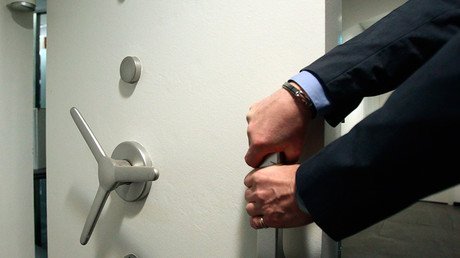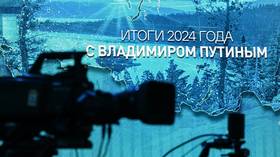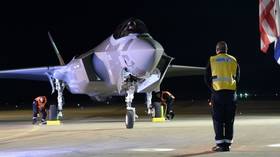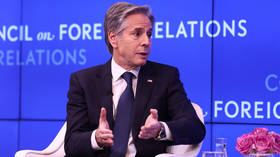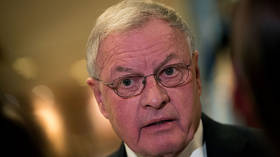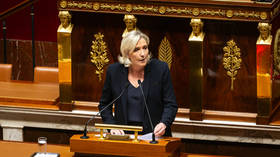‘Comical if not so tragic: Libya needs safecrackers to retrieve Gaddafi-era gold coins’
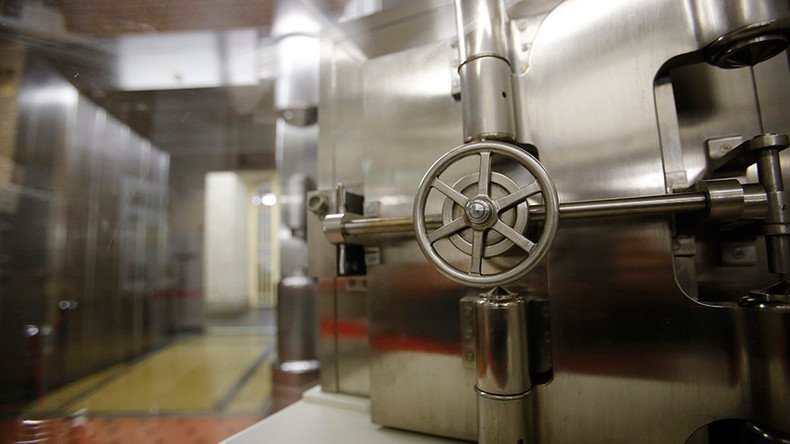
Part of the conflict is that there is still a competition over the Libyan resources, which was one of the main causes behind this conflict and intervention, Edmund Ghareeb, Professor of Middle East history and politics at the American University, told RT.
In the eastern coastal city of Beyda, in Libya there is a vault with gold and silver coins worth $184 million which belongs to the central bank. But Libya's cash-strapped government doesn’t have the code to open it, so it has hired a pair of safe-crackers to open a vault full of precious coins.
RT discussed the situation in Libya with Edmund Ghareeb, Professor of Middle East history and politics in the School of International Service at American University.
RT: So the eastern Libyan government has gold and silver coin reserves but no access to them. Isn’t it a quite comical situation?
Edmund Ghareeb: If the situation in Libya was not so tragic and terrible with two governments and more recently there is a third government established by the international community. You have different areas of the country controlled by different militias and tribes. Some of them are Salafi, some of them ideological, some of them ethnic. This is would indeed be a very comical situation, perhaps it would be good for a movie script for a thriller. But the situation is tragic and to a certain extent the situation also is a consequence of the regime-change policies, the external interventions which brought the regime of Muammar Gaddafi down and brought the grotesque and horrible end to his life.
All this was again what we saw in Iraq based on pretexts, manipulated intelligence, accusations that were not later justified. And so the situation in many ways, we are seeing a country that’s being fragmented. And there is again a threat of a new intervention or new interventions by Western powers. We hear that the US, British, French, Italian forces are in the country, in small numbers, of course. But this may be upped. We see ISIS control of certain areas. So the situation is extremely fluid and complicated. But again all of this is a consequence of an invasion that apparently… was not well-planned. General Carter Ham who was the head of the Africom said a few days before the events/invasion took place in Libya: ‘This conflict apparently we do not have a good plan for tomorrow and for the future’. So to a certain extent Libya is still facing suffering from the consequences of that invasion.
RT: What can be done now for the governments in Tripoli and eastern Libya to start talking?
EG: Unfortunately, we haven’t seen a very good plan so far. There are efforts and these efforts should be encouraged to try to bring together the different forces, especially the ones that are interested in seeing a peaceful resolution and rebuilding of the country. Part of the conflict is that there is still a great deal of competition over the resources of Libya, which was in fact one of the main causes behind this conflict and this intervention. And there is conflict over who is going to have access to the Libya investment fund resources which - the figures vary, but I’ve heard figures of something like $65 billion dollars - and who is going to get that money…But I think the Libyan people need a real solution to get out of this current morass and to try to begin to rebuild the country, to reunite it, and to let the people live a peaceful and normal life.
RT: What role should the international community play now? How do you asses the efforts to bring stability there? What should be done?
EG: I think the main thing is to try to get them to talk to each other, to try to include other forces as well, other groups. So basically it is not just these two governments. And now there is the third government. So, the people have to start talking to each other and this would be the best thing to get outside players and the international community to help Libyans to begin to come out. This is going to take years for Libya to return to normalcy. But at least if they can begin to do that: to get the various players, to get them to agree to create a more representative government then we might at least get to a road that might one day lead to a normal life for the Libyans.
RT: How could you comment the situation with safecrackers which were hired to open a vault full of precious coins?
EG: Well, again, if it wasn’t so tragic it would be comical. A head of the Central Bank doesn’t have enough money to pay for the employees, so he hires these two safe-crackers. On top of it, they want to melt the gold, even though probably they would get much more money if they sell the coins as they are because people would love to have souvenirs or memorabilia. But because of the picture of Gaddafi on the coins, they don’t want to have the political implications of this. So, they are willing to melt them and to make less money than if they’ve sold them as coins. And on top of it, the people of the town are saying that it is their money. It is a very messy and complicated situation.
The statements, views and opinions expressed in this column are solely those of the author and do not necessarily represent those of RT.
